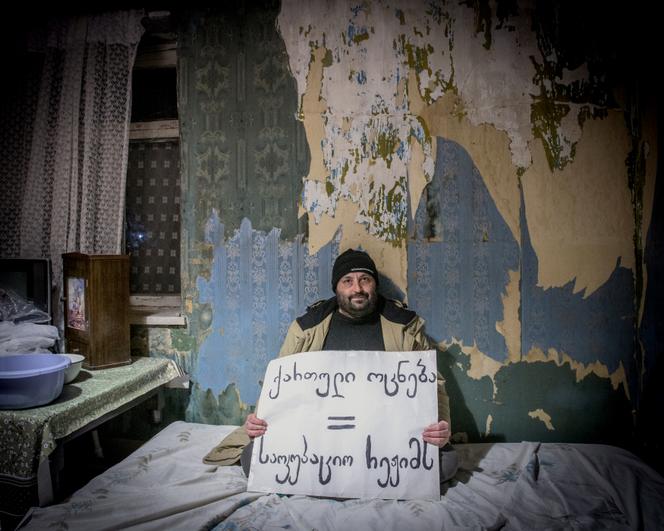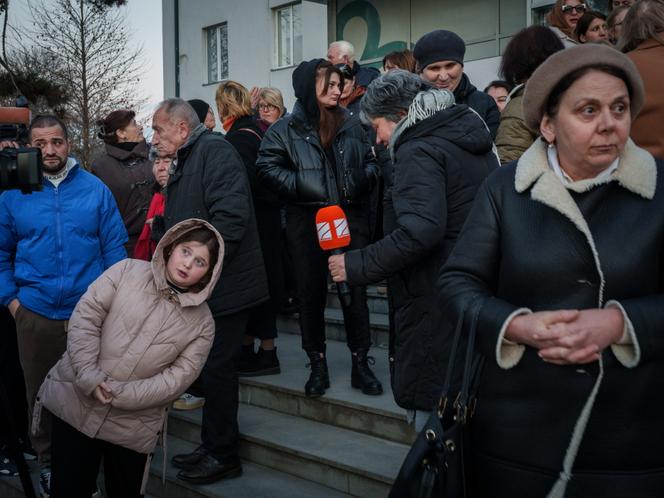


For the first two days, he was alone in the street, carrying his placard. Passers-by approached him, intrigued, and photographed him. Some encouraged him, surprised by his audacity. Others called him crazy. Children mistook him for a beggar and gave him spare change. A man with an impressive build ran straight towards him. The lone protester thought he was going to get slaughtered, but the other man hugged him: "I adore you, you're a good man."
In Khachouri, a small, peaceful town in central Georgia, Sergo Gambachidze, a 49-year-old psychologist, was the first to protest against the government's announcement, on November 28, to suspend the European Union (EU) membership process until 2028. "I was so angry at this decision and the repression of demonstrators in Tbilisi that I didn't think twice: I ripped off a piece of wallpaper at home to make myself a sign," he recounted, "and planted myself in front of the local office of Georgian Dream," the ruling political party.
Since then, hundreds of people have joined in. Demonstrations are now held every day in the square, amidst the Christmas decorations. The event is so rare that we had to dig into the archives to find out when the last protests occurred in Georgia. It was in May 1989. Back then, hundreds of people protested against the repression of an anti-Soviet demonstration. Since then, the USSR has fallen, Georgia regained its independence in 1991 – it had already been independent for three years before the Soviet invasion in 1921 – and has resolutely turned towards the EU, a goal enshrined in the Constitution. And now the party in power since 2012, Georgian Dream – founded by billionaire oligarch Bidzina Ivanishvili, the strongman of the country of 3.7 million – is burying the prospect, turning the country away from Europe in favor of Russia.

In the former Caucasus republic, where 80% of the population favors European integration, the reversal has aroused immense anger and an unprecedented protest movement, which is now spreading to more than 40 cities across the country. A group of Georgian sailors has even launched a protest campaign on the open sea, calling to "protect [their] homeland's European future" and condemning the repression of the demonstrators.
Images of young people with swollen faces shock many in the regions, multiplying anger at the government tenfold. More than 340 people have already been arrested, of whom nearly 80% say they have been abused by law enforcement, according to the defender of rights. The government accuses the protesters of being "radicals," "liberal fascists" supported by "foreign funds." In Tbilisi, as in the rest of the country, however, demonstrations were spontaneous and peaceful, apart from a few clashes in the capital when crowds were dispersed.
You have 65.18% of this article left to read. The rest is for subscribers only.
